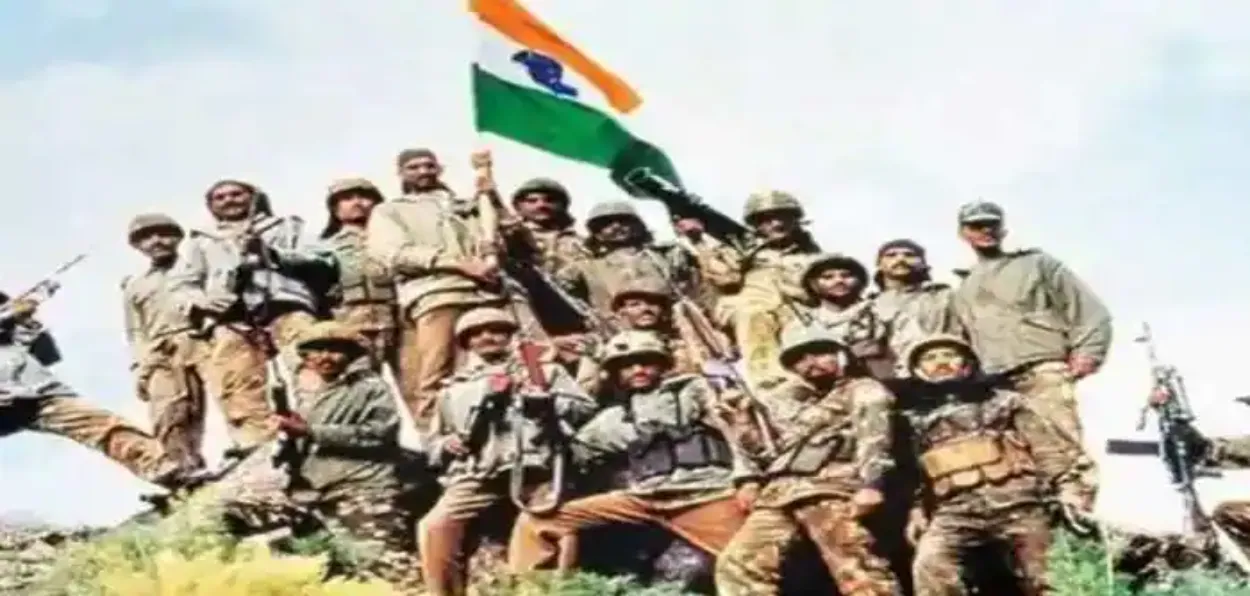
It was 24 years ago that Pakistan lost its credibility in the eyes of India and the world realized the catastrophic implications of Islamabad’s ambition of wresting J&K by hook or by crook. The Kargil conflict, triggered by the ambition of the Army Chief General Pervez Musharraf proved to be the last nail in the coffin of Pakistan’s trustworthiness as a state.
The Kargil conflict was a two-month war provoked by the Pakistan Army that sent troops of the Northern Light Infantry, then a para-Military Force - like our Rashtriya Rifles- and Special Forces to the barren heights in Kargil overlooking the arterial link to Saichen Glacier and Leh.
In its shoddiness, Pakistan didn’t accept the presence of its troops, who were in plain clothes and claimed they were ‘Kashmiri Mujahideen’ fighting for a cause. Also, while planning the incursion on the posts that were routinely abandoned during winter, the Indian reaction was not taken into account .
General Musharraf had been planning this operation with a couple of his confidants when his Prime Minister Nawaz Sharif was welcoming Atal Bihari Vajpayee on his famous bus travel to Pakistan at the Attari-Wagah border. Vajapeyee-Sharif handshake had led to optimism in both countries about peace being given a chance.
Also, the world was looking at a new dawn of peace in the sub-continent while Mushrraf was thinking of snapping the crucial road link the Indian army used.
Ashfaq Hussain, formerly with Pakistan’s elite Special Services Group, who was a Colonel in the ISPR at the time of the Kargil war, wrote in his book Witness to Blunder: Kargil Story Unfolds that Kargil was a misadventure by Musharraf.
It was his book that first revealed that Musharraf flew across the Line of Control (LOC) on March 28, 1999, and traveled 11 km into the Indian side. He also spent a night in the Indian Territory and was accompanied by Brig Masood Aslam, then commander of the 80 Brigade.
Naseem Zehra, a senior Pakistani journalist who has written the book From Kargil to the Coup told BBC that Gen Musharraf had casually told Prime Minister Nawaz Sharif about his Kargil plans on 17 May, a few days before the Indians detected the presence of Pakistanis in Kargil at the height of 16,500 ft to 18000 ft.
She told BBC in an interview that, “Nawaz Sharif was briefed with maps that are typically understood only by the army men. As such we know how short his attention span was and I don’t think he (Sharif) understood the full implications of the plan.”
Hussain’s revelations on the Kargil war also debunk Musharraf’s claim that only 270 Pakistani personnel had died in the war as grossly underreporting.
Zehra told the BBC that though officially no authentic figures of war casulties are released, Pakistan had lost more men than it had lost in the 1971 war with India. Sharif later said that over 4,000 Pakistani troops were killed in the operation.
India had lost 542 men in the war while about 1,363 were injured.
There was much criticism of the Kargil operation by the political leaders of Pakistan. Interestingly, the two-time Prime Minister Benazir Bhutto had rebuffed Gen. Musharraf when he came to her with a Kargil-type proposal when she was the PM.
In her biography Daughter of the East, Benazir writes she asked Musharraf whether he realized the implications of such a misadventure before rejecting the idea.
She called the Kargil War "Pakistan's greatest blunder".
Many ex-officials of the military and the ISI also were of the view that "Kargil was a waste of time" and "could not have resulted in any advantage" on the larger issue of Kashmir.
A retired Pakistani Army General, Lt Gen Ali Quli Khan Khattak, lambasted the war as "a disaster bigger than the East Pakistan tragedy". He said the Kargil plan was "flawed in terms of its conception, tactical planning and execution" that ended in "sacrificing so many soldiers.".
The Pakistani media too was vocal in its criticism of the plan and the eventual climb down from the Kargil heights since there were no gains to show for the loss of lives and only resulted in international condemnation for its actions.
On the social front the abandoning of the bodies of its soldiers who belonged to the northern areas –inhabited by Shia Muslims - was fumed upon by the people of the region. The locals held protests over the Pakistan army’s giving up the bodies of the martyrs.
Finally, in July Sharif rushed to Pakistan and sought the intervention of President Bill Clinton who was famously holidaying on a weekend to end the war. India has in the meanwhile recaptured all the lost peaks when Pakistani troops were ordered to retreat.
ALSO READ: Where did Hurriyat vanish to pave way for peace in Kashmir?
The war changed the course of India-Pakistan relations for all time to come; never could Delhi ever trust Pakistan for embarking on any serious peace overture.
